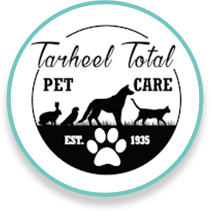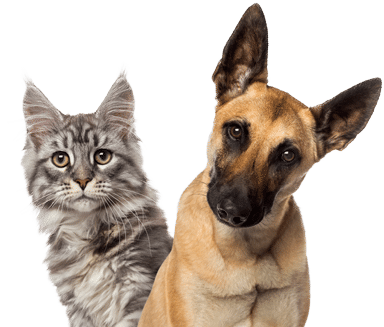As your pet ages, their nutritional needs change, requiring a thoughtful approach to diet and care. This article provides effective nutritional advice for senior pets, ensuring your furry companion remains healthy and vibrant. Let us guide you through essential diet changes for their golden years.
Effective nutritional advice for senior pets includes: selecting age-appropriate, high-quality food tailored to their specific needs, balancing their diet with proper protein, fiber, and healthy fats, incorporating supplements like omega-3s or glucosamine, and consulting a veterinarian for customized guidance.
- Why Your Senior Pet’s Diet Needs a Tailored Approach
- Key Ingredients to Look For in Senior Pet Food
- The Role of Supplements in Senior Pet Wellness
- Consulting a Veterinarian: A Partnership for Your Pet’s Health
- Hydration and Meal Timing: The Often-Overlooked Essentials
- Nutritional Advice for Senior Pets: Common Feeding Mistakes to Avoid
- Caring for Your Senior Pet Starts With Nutrition
Key Takeaways
- A customized diet supports your senior pet’s changing metabolism, digestion, and energy needs, helping them thrive in their golden years.
- Choose food with lean proteins, healthy fats, antioxidants, and fiber to promote digestion, joint health, and immune support for your senior pet.
- Supplements like omega-3s and glucosamine can address specific health concerns, but always consult your vet before introducing them.
- Regular veterinary check-ups help ensure your senior pet’s diet is optimized for its unique health needs and lifestyle.
- Proper hydration and consistent meal schedules are critical for supporting digestion and preventing dehydration in senior pets.
- Avoid overfeeding, relying on treats, and giving table scraps to ensure your senior pet maintains a healthy weight and balanced diet.
These foundational tips are just the beginning of supporting your senior pet’s health. Keep reading to explore detailed advice on meal planning, ingredient selection, and the importance of hydration for aging pets. Your beloved companion deserves the best care possible.
Why Your Senior Pet’s Diet Needs a Tailored Approach
Aging brings significant changes to a pet’s body, from reduced energy levels to slower digestion. Just like humans, pets require a diet that evolves with their needs. For instance, senior dogs often need fewer calories to prevent weight gain, while older cats may struggle with reduced appetite.
The American Veterinary Medical Association (AVMA) reports that in 2024, 45.5% of U.S. households own dogs, and 32.1% own cats, highlighting the importance of tailored care for pets of all ages. A personalized diet ensures your pet gets the nutrients they need to maintain muscle tone, support joint health, and boost their immune system.
By understanding your pet’s changing nutritional requirements, you can give them a better quality of life, ensuring they stay active and happy well into their senior years.
Key Ingredients to Look For in Senior Pet Food
Not all pet food is created equal, and choosing the right one can make a significant difference in your senior pet’s health. When considering nutritional advice for senior pets, focus on these essential ingredients:
- Antioxidants: Help combat aging-related cellular damage and boost immune health.
- Omega-3 Fatty Acids: Support joint health and maintain a shiny coat.
- Lean Proteins: Aid in muscle maintenance without adding extra calories.
- Fiber: Improves digestion and helps prevent constipation, a common issue in older pets.
Pet parents should avoid fillers like corn or soy and prioritize natural ingredients. Brands offering senior-specific formulas often meet these criteria. When in doubt, consult your veterinarian for guidance on the best options.
The Role of Supplements in Senior Pet Wellness
Supplements are an excellent way to address specific health concerns in senior pets. For example:
- Omega-3 Fatty Acids: Reduce inflammation and support cognitive function.
- Glucosamine and Chondroitin: Promote joint health, reducing stiffness and pain in aging pets.
- Probiotics: Enhance gut health and improve digestion, which can slow with age.
Joint issues are a common concern, a report says 52% of dogs and 41% of cats experience joint pain. In response, 36% of dog owners and 28% of cat owners purchase joint supplements, frequently based on veterinarian recommendations. These options can align with nutritional advice for senior pets by improving mobility and enhancing their overall quality of life.
However, supplements should be chosen carefully and introduced only under veterinary guidance. This ensures they complement your pet’s diet and address their unique needs effectively.
Consulting a Veterinarian: A Partnership for Your Pet’s Health
Your veterinarian is your best partner in managing your senior pet’s nutrition. Regular check-ups allow for monitoring weight, detecting potential health issues, and adjusting their diet as needed.
A tailored nutrition plan created with your vet ensures that your pet’s dietary needs are met, whether they require a special kidney diet, weight management, or support for joint issues.
Investing in professional guidance not only improves your pet’s quality of life but also gives you peace of mind knowing you’re providing the best care possible.
Hydration and Meal Timing: The Often-Overlooked Essentials
Hydration is vital for senior pets, as they are more prone to dehydration due to aging kidneys or reduced water intake. Ensure fresh water is always available and consider incorporating wet food into their diet for added hydration.
Meal timing is another factor often overlooked. Splitting meals into smaller, more frequent portions can help senior pets digest food more easily and avoid gastrointestinal discomfort.
A study by the Dog Aging Project found that once-daily feeding is associated with better health outcomes in companion dogs. Incorporating these strategies aligns with nutritional advice for senior pets, helping improve their digestion, hydration, and overall well-being.
Nutritional Advice for Senior Pets: Common Feeding Mistakes to Avoid
Even well-meaning pet parents can fall into habits that harm their senior pet’s health. Common mistakes include:
- Overfeeding: Extra weight puts strain on aging joints and increases the risk of chronic conditions.
- Relying on Treats: While treats can be a bonding moment, they add unnecessary calories and often lack essential nutrients.
- Offering Table Scraps: Many human foods are unsuitable for pets, potentially causing digestive issues or worse.
To avoid these pitfalls, measure portions carefully, limit treats, and stick to a feeding schedule. Following nutritional advice for senior pets by choosing balanced, age-appropriate food can help maintain their health and well-being.
Caring for Your Senior Pet Starts With Nutrition
Your senior pet’s health and happiness depend on the choices you make today. By following effective nutritional advice for senior pets, you can support their changing needs and improve their quality of life. A tailored diet rich in essential nutrients, proper hydration, and regular veterinary guidance can ensure your pet thrives in their golden years.
At Tarheel Total Pet Care, we know your pets are family. We take your pet’s diet and medication needs seriously. When boarding with us, or using our doggy daycare and pet-sitting services, you can trust that their nutritional requirements and health routines will be followed with care and attention. Contact us today at 908-234-0644. Let us help you provide the love and support your senior pet deserves while you’re away.
What signs indicate my senior pet’s diet might need to be adjusted?
Common signs that your senior pet’s diet might need adjustments include sudden weight gain or loss, decreased energy levels, changes in stool consistency, or dullness in their coat. If you notice any of these, consult your veterinarian to evaluate their nutritional needs and make appropriate changes.
Can I feed my senior pet the same food as my younger pets?
While it might seem convenient, senior pets have different nutritional needs than younger animals. Their diet should include fewer calories, higher-quality protein, and specific nutrients like omega-3 fatty acids for joint health. Feeding them age-appropriate food ensures they receive the best care for their stage of life.
How can I encourage a picky senior pet to eat?
For picky senior pets, try warming their food slightly to enhance its aroma, mixing wet and dry food, or offering smaller, more frequent meals. Choosing high-quality, flavorful senior pet food can also make mealtime more appealing. If issues persist, consult your veterinarian to rule out underlying health problems.



